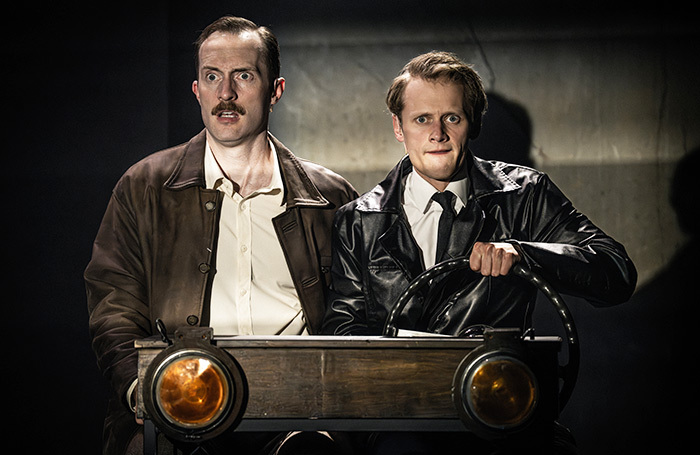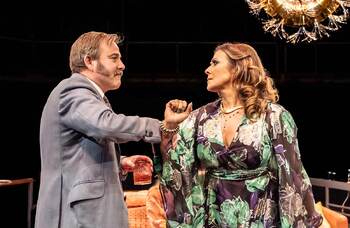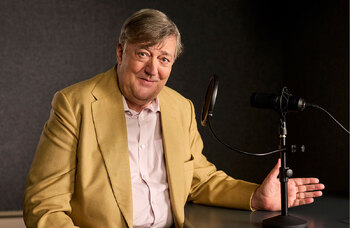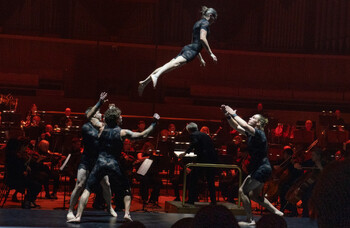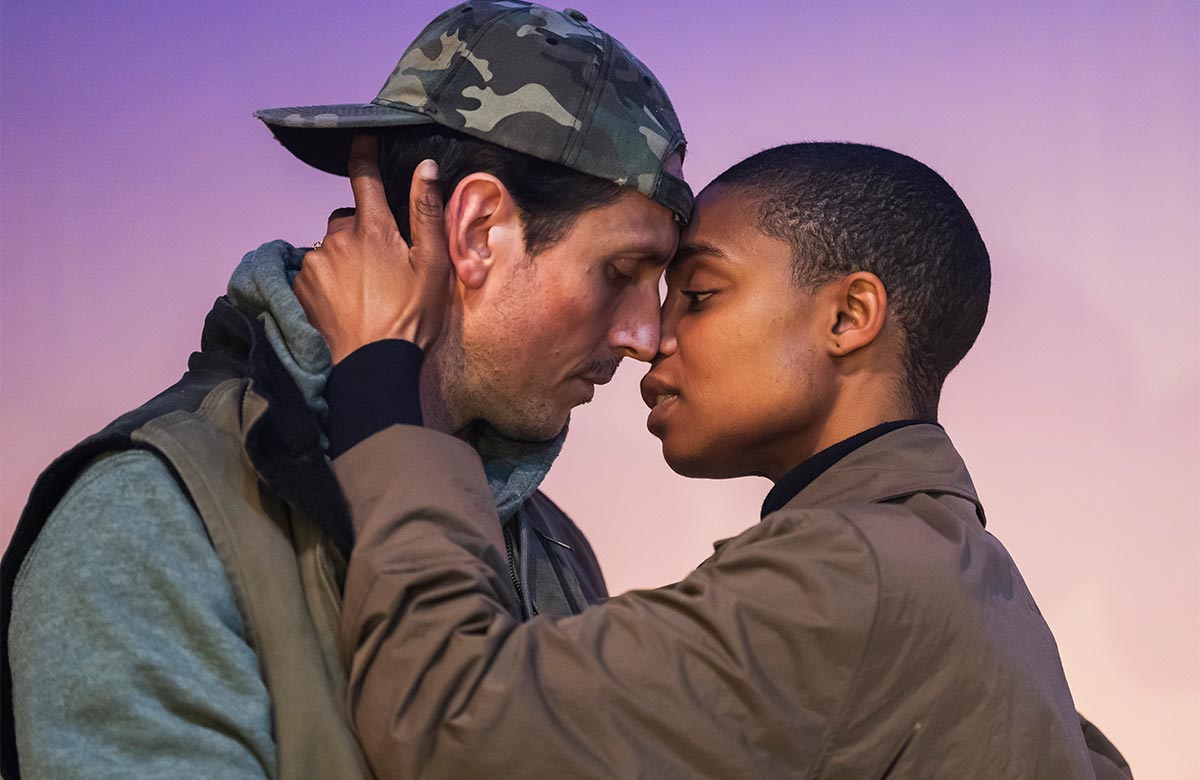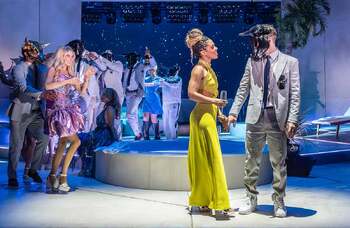In the Mouth of the Wolf review
Thought-provoking adaptation of Michael Morpurgo’s tale of wartime conscience and role-play
“Brother. Father. Teacher. Spy.” The enticing publicity for Simon Reade’s new adaptation of this novel, by Michael Morpurgo, of family conflict and wartime derring-do neatly highlights a key theme: ordinary people achieving extraordinary feats of bravery. It’s based on the true story of the brothers of Murpurgo’s own half-Belgian mother during the Second World War – Pieter, an actor who joined the RAF to fight fascism, and Francis, a staunch pacifist and teacher on “the front line” of education. After his younger brother’s death in action, Francis became a prominent leader of the SOE in France, conducting lethal operations behind enemy lines.
Philip Wilson directs a skilled cast with pace and flair, charging through 27 scenes, with two of the three-strong cast playing several characters each. It takes a while to warm to these thoroughly decent if somewhat stiff-upper-lipped individuals from a bygone era, but John Hastings increasingly engages in his single role as the earnestly ethical Francis, ever ready with a Shakespeare quote to deepen a debate, and mocked by adults and schoolchildren alike for his unusual height and enormous feet.
Early childhood scenes between Francis and Shaun McCourt’s intrepid Pieter are a little unconvincing owing to Hastings’ towering stature, but tellingly convey the brothers’ innate differences as, pretending to ward off wolves in the forest, Pieter advocates brandishing a large stick, while Francis suggests clapping hands to scare the imaginary foe away. Their exchanges become testier in young adulthood, when Pieter, already an upcoming actor in Stratford-upon-Avon, informs Francis that he is signing up to fight Hitler as “you can’t go on making make-believe when so much is at stake”. Francis, as a “conchie”, is dispatched to a Lincolnshire farm where he meets his future, long-suffering wife (the versatile Helena Antoniou), and – in a foreshadowing of the violence demanded by his future espionage activities – is forced by necessity to slaughter a goose.
Continues...
Once Francis has made his decision to join the SOE, events come thick and fast – and are superbly staged by Wilson’s team. Lighting designer Ryan Day’s use of torches and spotlights evokes the world of expressionistically lit, black-and-white war films; composer and sound designer Ella Wahlström conveys the terror of war or landscape of the river Avon with snatches of marching soldiers or quacking ducks; designer Yoav Segal conjures tractors, cars and a cockpit with a school desk. Voice coaches Jan Haydn Rowles and Zoe Littleton ensure accents finely delineate each character.
Reade deftly connects the brothers’ sibling sparring, internal wrangling and chosen vocations by way of a host of literary references: “to fight or not to fight?” asks Francis, while striving “to be” – to inhabit fully – the challenging role of spy or, indeed, teacher. The play’s ominous title comes from the Italian equivalent to our English theatrical idiom, “break a leg”. I will never think of this expression in quite the same way again.
For all the latest reviews from The Stage, sign up to our weekly reviews newsletter here
More Reviews
More Reviews
Recommended for you
Most Read
Across The Stage this weekYour subscription helps ensure our journalism can continue
Invest in The Stage today with a subscription starting at just £7.99
